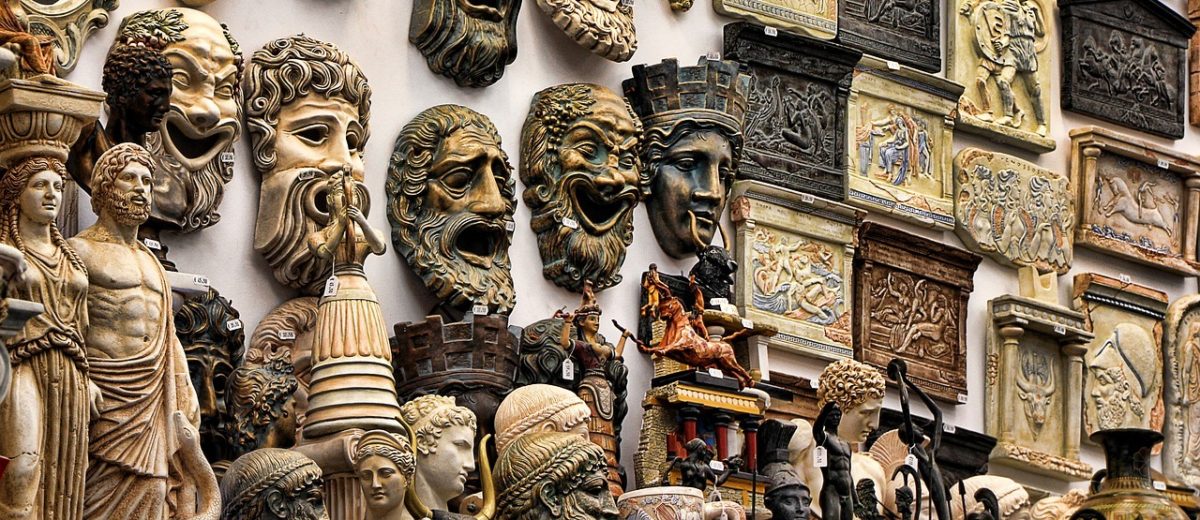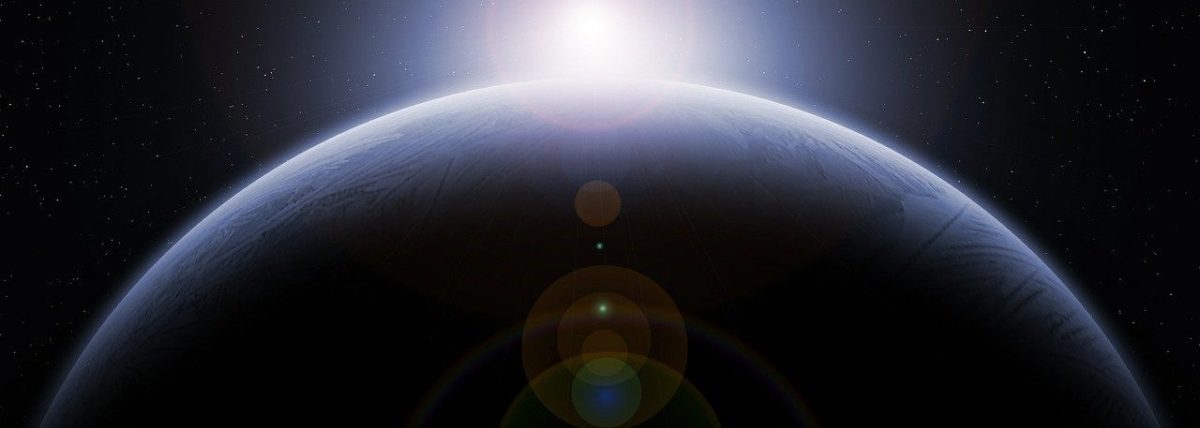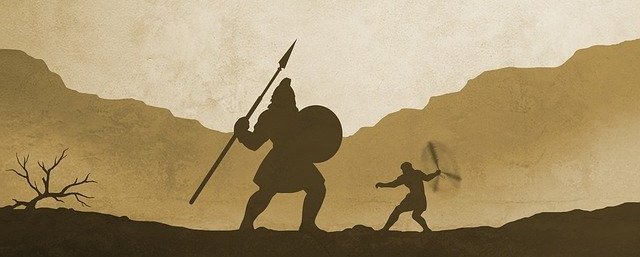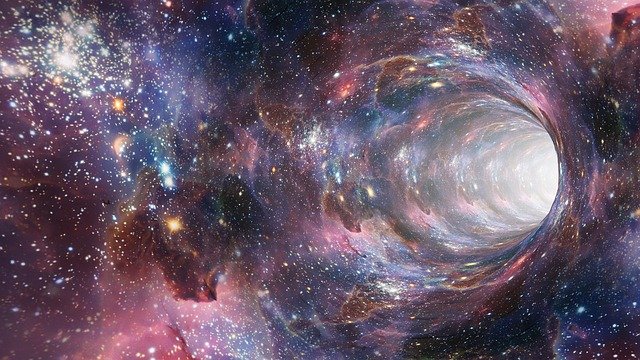The Vertical Dimension
Essay by Charlie Obert, November 2020.
Socrates: It is now your business, O Timaeus, to begin the discourse; having first of all, as is highly becoming, invoked the Gods according to law.
Timaeus: Indeed, Socrates, since those who participate but the least degree of wisdom, in the beginning of every undertaking, whether small or great, call upon Divinity, it is necessary that we who are about to speak concerning the universe, invoking the Gods and Goddesses, should pray that what we assert may be agreeable to their divinities, and that in the ensuing discourse we may be consistent with outselves. And such is my prayer to the Gods.
– Plato, Timaeus
“Let the words of my mouth, and the meditation of my heart, be acceptable in thy sight, O Lord, my strength, and my redeemer.”
– Psalm 19:14
Since I am speaking here of God and the Gods I think it both appropriate and necessary to begin this essay by calling upon Their guidance and favor in this meditation.
In a previous essay, Old and New Cosmos, I spent time exploring how our concept of the world is vastly different from that of traditional astrology. There is one very important aspect of the traditional cosmos that I want to explore here.
What I am trying to do here is to sketch out an overall model of the world that makes sense of astrology. This is all based on the traditional view of the cosmos that gave birth to astrology. I think that this model is still living and viable, and that modern science can also fit within this model.
In the traditional cosmos we have the eternal world, the heavens, above, as the source. The earth and the mutable physical world is at the bottom. Spanning between the two we have the perpetual world of the traditional planets. There are similar levels within human consciousness – we have an eternal spirit, we have a mortal physical body, and mediating between the two is our consciousness which spans the worlds.
The Vertical Cycle is the flow or creation, from the eternal heavens down to earth, and then back to the heavens and the source. It is vertical in the sense of being dependent; the mutable temporal world depends on the eternal world, it comes forth from it and returns to it. The direction of creation and of causality is from the eternal to the temporal.
The Vertical Cycle is not spatial – that no longer fits our image of the cosmos. The Vertical Cycle cuts across dimensions of being; it is not limited to our physical, material universe. You can think of it as dimensions of consciousness, and that can be helpful provided that you do not reduce this to a merely psychological model. This cycle is not just something going on within our minds; in fact I think it is more accurate to say that our minds are within the context of this cycle, which contains our minds AND the objective physical universe.
I want to examine some of the ramifications of this view of the cosmos here. These are very important in understanding traditional astrology. I also am convinced that we need to recover some of the dimensions of this model of the cosmos in order to be fully human, and to be able to face and deal with the problems confronting us in the modern world.
All of the points I am making here are inter-connected; I could almost start with any one of these points and move to all the others. Each of them implies all of the others. This is an overall coherent world view here, and realizing all of these dimensions is necessary for the whole pattern to make sense. This essay may well benefit from a second reading to grasp the entire pattern.
In this essay I am sketching out a broad overview of the entire model. In further essays I plan to flesh out individual aspects of this model in more detail.
Heaven – the One and the Gods
In this model, the eternal world is the source of all and the final destination of all – all of creation comes forth from it and returns to it.
The eternal realm is the kingdom of the Gods. I am deliberately using Gods in plural here. There is a single source from which everything proceeds; the Platonist tradition refers to the source as the One and the Good. It is beyond everything we think of as God, even beyond what we think of as being or existing, so ultimately it is defined in negative terms, by what it is not. Trying to define the One in positive terms, as one God, leads to all sorts of logical contradictions. We can only point to it.
The One ties everything together, and it is the source of the creative, conscious and intelligent beings we call Gods. Although all of the Gods come forth from the One, and you can say they point to the One, no one form of God has a monopoly on the divine.
The Gods come forth from the One; the Universe we know comes forth from the Gods, and returns to the Gods and to the One. It is a polytheist model where the Gods exist within the overall context of the One. I will be exploring the topic of multiple levels of gods in detail in a future essay.
With this model comes the realization that we always live in the presence of the Gods, that they created our world, and are creating and sustaining our world each instance. We are always in the presence of the Gods and of the One. Astrology is one of the ways to model how the Gods manifest in our world.
Our world is filled with the presence of the Gods, from top to bottom and back.
Reason
In the traditional model, reason is what makes us distinctly human – to balance, to judge, to make decisions. Reason has laws and has structure. The critical point is that human reason is not free-floating or arbitrary, it is rooted in the context of the structure of the cosmos. Our mind, our reason, works with laws, and the laws are larger than our reason. This is different from our modern model which conceives of reason as being something outside of the external world that our mind imposes on it. Reason in the modern sense has a free-floating and arbitrary quality that can lead to some pretty strange philosophies depending on the starting point they choose.
Reason is a connective in the Platonic cosmos. It it connects us to the world around us, and it connects us to the eternal source of the world. Reason connects the eternal and temporal worlds within the human. If you think of our reason as spanning a vertical dimension, the upper edge of reason touches on the world of eternity, and then works down to the material world – or, you can climb the chain of reason in the other direction, starting with material world experience and reasoning up to its connection to the One. Our minds span the cosmos from lowest to highest. This is a distinctly Western approach, viewing reason as something that connects us to the divine rather than something we need to discard or bypass to get at the divine.
At its very highest Reason itself has its source in Intellect, Unitive Knowing, which in turn has its source, in the Principle, the One. Reason won’t take us all the way to the divine, but right up to the edge.
Part of the Platonic process of dialectic is connecting the levels with the use of reason; climbing from sense data using reason up through the levels and to the source of all form in the eternal.
Science
I have referred to this subject before, and wrote an essay on the meaning of the term Science. Putting it in the frame of our discussion here, in the modern sense of the term science is all horizontal. It operates only with empirical, space/time data, and all cause and effect is empirical and horizontal. In the older sense of the term science is vertical, and deals with reasoning from first principles. That is embedded in our language – the word principle means primary, both as most basic and as starting point.
This aligns with the points we made about human reason. Reason studies Scientific concepts in the sense of eternal forms or laws that are rooted in the structure of the universe itself.
Causality
The traditional model of causality follows from the previous points. Modern causality in empirical science is all in a horizontal dimension. In the traditional world model, causality is from the top down. In older language, the world is created by God or the Source, through the chain of the gods who are acting on the world. In the other direction there is a return from the physical word back to the Source from which it arises and to which it returns. In this model the various levels of gods are part of the chain of causality.
The Human Being
What makes us distinctly human is precisely that we have a vertical dimension, and this matches the vertical dimension of the larger cosmos. We have levels of consciousness within us matching the levels of reality of reality around us.
There are different models for these levels of consciousness, which vary in complexity. At simplest, humans have three levels, of spirit, soul, body. You can break this down further. This is a model I find useful and workable.
- Spirit above us, our eternal core.
- The human soul, which spans multiple levels.
- An intuitional or higher level – I think of it as Unitive Mind. This touches on transcending time.
- The rational mind. Our ordinary thinking mind that works on parts over time.
- Lower or animal mind, driven by emotions, desires and physical sensations.
- The physical body.
However you map this, the important point is that we span multiple levels. There is part of us that lives in the eternal world, and our consciousness spans from eternity to time. Human consciousness is in the middle; it is a bridge. This also means that humans participate in this chain of being from God or the Source, through the Gods, and down into the earth.
Any model of being human that does not span levels like this decreases us to something much less than fully human. All of our actions here on earth all have an eternal dimension; In older language, we live each moment of our lives in the presence of the Gods.
Worship
Worship is an absolutely critical part of this model. It follows from the world being created and sustained by the Gods. It also follows from our lives as humans being connected to the Gods within, where the fountain source of the human mind is the eternal. To work in harmony with this vertical structure of universe it is necessary for the human mind to acknowledge the god and gods above us, to place itself under them, and to be in a posture of worship, gratitude and service. Worship aligns us with the creative structure of Universe.
Many of the Platonic texts begin with a prayer, placing the writer in the presence of the Gods and invoking their assistance. This essay begins with such a prayer. I am writing this in the conscious presence of the Gods and invoking their assistance and inspiration.
Prayer
This is a necessary part of worship, and important enough to focus on in its own right. I will be dedicating a future essay just on prayer.
The human mind, human consciousness, is created to work in the presence of the Eternal. Prayer is part of how we align ourselves with the Eternal. It is awareness of the eternal, it is gratitude, it is worship, it is thanksgiving, it is supplication.
Nourishment
This follows from the previous point, and is part of why we need worship and prayer. Creation comes from the Source through the Gods and returns through the Gods to the source. This means the Gods are creating and directing and sustaining the order we live in. This in turn means we are being fed, nourished, by the Gods, by higher powers.
Recognizing this, acknowledging it, turning to God and the Gods in prayer, in thanksgiving, is necessary nourishment. It is an inner spiritual nourishment that is essential to fully flower and be fully human.
Moral Law
This is absolutely critical. The universe here has a coherent structure, created by God/ the Gods, and is created according to rules, laws. Our science can study some levels of those laws, but not all. There is a dimension of moral law to the universe. There are ways of thinking and acting that conform with the overall structure of the universe, and ways that violate and go against it.
When we work with the structure we are living our lives in alignment with eternal order, and our lives flourish. When we ignore this structure, when we violate the eternal order, we introduce discord, chaos and suffering. We live our lives each moment in the presence of an eternal moral law and we are judged, evaluated, each moment, by our thoughts and actions.
It is important to keep in mind that all human moral and ethical codes are attempts to express and align with this moral law. No single religion or structure has a monopoly on this law. Part of the human task is to study and learn this law and learn how to align with it. It is a lifetime process – in fact, I think it is a multiple lifetime process.
Human Free Will
Human free will only makes sense in a universe with a vertical dimension. Stay only on a material dimension and you have a cause-effect chain where each event causes the next. There is no place for human free will in a horizontal model.
Much of our life is lived in this horizontal dimension, so much of who we are is caused by the horizontal chain of events, cause and effect in the usual sense we understand it. There are schools of psychology, and schools of philosophy, which dismiss the notion of human free will as a comfortable illusion, and view humans as basically animals, helpless programmable robots who are being driven by outer sources while having the comfortable sense they are freely choosing it. The frightening thing is that these horizontal models can be very effective, and develop techniques for programming and manipulating human robots. This is manipulation in the sense of coercion, and much of the media we are surrounded with is crafted to keep us robotic, keep us programmed, telling us what we think and what we do while we have the illusion we’re doing it ourselves.
In astrology terms the planets run the mutable world; they are agents of fate, and humans exist in that web and can only acquiesce to it. That is a very large portion of human existence – but it is not all of it.
In traditional cosmos there is a dimension of human consciousness that stands apart from and above the mutable space/time world. There are many dimensions of our lives we have no control over, but we always have a dimension of choice, of human free will, of how we choose to act and respond. This human free will is not absolute or arbitrary, even though we sometimes like to think so. We don’t have the freedom to do anything we want. Our freedom exists within a larger context.
Even the most fatalistic of the traditional philosophies like Stoicism maintain that humans have the ability to choose how they think and how they respond within this overall order. Stoic spiritual discipline is basically about shaping the human response.
Within the Christian worldview, which dominated much of the west for many centuries, there was a dimension of fatalism, and in that sphere the planets were the arbiters of fate, and astrology foretold what would happen. In order for the Christian model to make any sense at all there needs to be a higher dimension of human consciousness in which we can freely choose our response to the world. There needs to be free will for there to be grace.
Free will is vertical, not horizontal. Without an eternal dimension to the cosmos and to human consciousness free will is meaningless.
Astrology
I want to talk about astrology in this model for the conclusion. I maintain that the whole system of astrology needs this vertical dimension to make any sense at all. Astrology is mapping the movement of the planets in the heavens and how they reflect eternal order down to our mutable world. Astrology crosses dimensions. Astrology is a form of worship, and astrology is consulted to learn the Will of the Gods.
If astrology is a science – and I think it is – it is a science in the older, vertical sense of the term, in which it studies the process of how the mutable world is shaped by the eternal – how the earth mirrors the heavens. That is practically speaking the definition of astrology.
Universe having significance and meaning. Universe having order and pattern.
Astrology is a coherent whole, and it only makes sense as part of a larger order of the cosmos. It studies the significance of the planets and their movement. It is part of the study of an overall order of the cosmos that includes mathematics and geometry and reason and ethics… and so on. The entire cosmos coheres, it has meaning, intelligence and pattern. Astrology is part of the study of that pattern.
For me, ultimately, astrology is a form of worship. It is an integrated part of an entire universe, and of a spiritual path through the universe.









